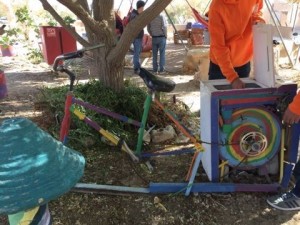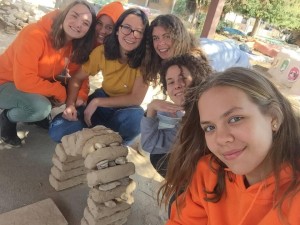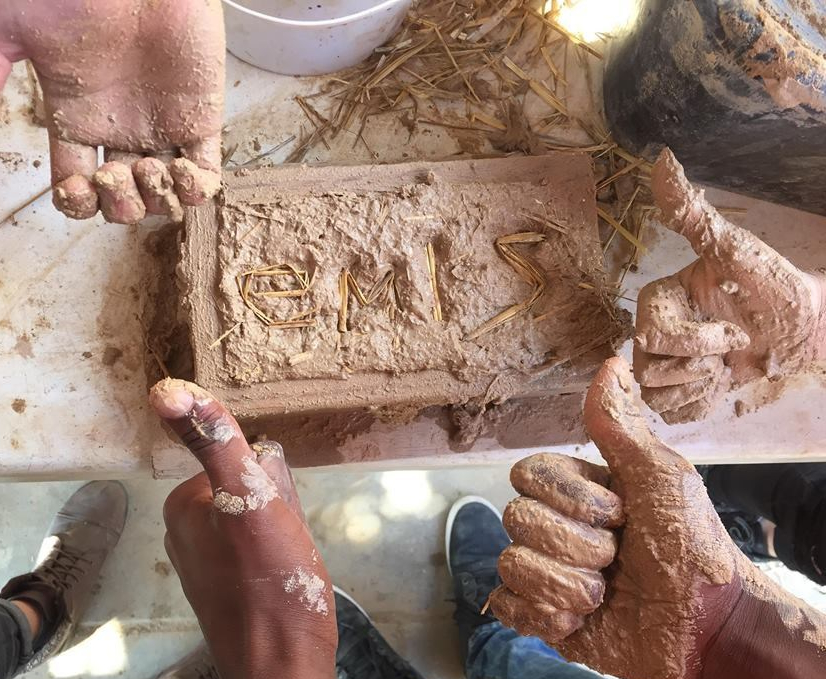Here in EMIS the conflict and the issues with sustainability are everyday topics for students.
Thus, we are lucky to have possibilities to have an entire week that gives us a chance to fully immerse in what this school stands for.
On the 29th of January, the whole school started a complex and elaborate trip that brought us to different borders. For two days, we saw how this conflict affects the country, its borders, people and their lives.
At the same time, we took care of the other school’s mission – sustainability, which brought a group of us to the South of Israel, in two of the most sustainable Kibbutzim in the whole country.
Kibbutz Ketura hosted us, giving us the chance to visit their neighbour – Kibbutz Lotan.
Here the original and authentic ideas of the people living in the Kibbutz inspired us to develop our community and how we approach sustainability in EMIS.
The green village is made mostly of organic buildings consisting of sand, mud and straw. We also had the possibility to have a workshop, teaching us techniques on how to build bricks for such houses. During this process we understood the necessity of spreading this knowledge to as many people as possible since our tour guide made us swear before receiving it: <<While I am learning this secret approach, I promise to extend and talk about it as much as I can.>>
The impact that the Kibbutz is trying to have is not limited to just these particular homes. The invention of compost toilets saves the Kibbutz from a large waste of water and in addition, after a year, makes a great compost that is used for the vegetable garden – where any kind of plants grow.
The students in the Kibbutz also implement small but great ideas on how to save energy, like a “blender bicycle” to exercise while you’re preparing a healthy smoothie. The same technique is used with a “laundry machine bicycle” that transforms the energy from your body into energy to wash your clothes.

Saving energy is also applied in cooking with a really advanced solar kitchen which gives the possibility to cook a meal in a couple of hours without wasting electrical energy.
Kibbutz Ketura claims the largest solar field in Israel, as well as a solar garden and vacuum tubes powered by the sun to bake cookies and cook basic food.
Our experience got us to understand how the social life of a Kibbutz works, and how the committees make decisions for the residents and their behaviour – the procedures of its political behaviour – by organizing a simulation to be part of the process.
As our green team leaders said, we hope that we will be able to bring these great ideas to EMIS and the attitude that the people in Kibbutzim have between each other and towards the environment.

Elena Cassina


Leave a comment